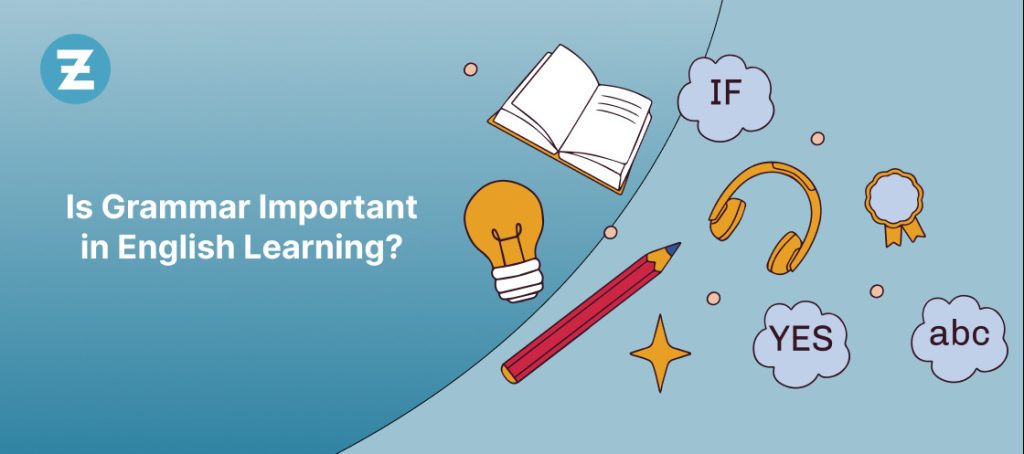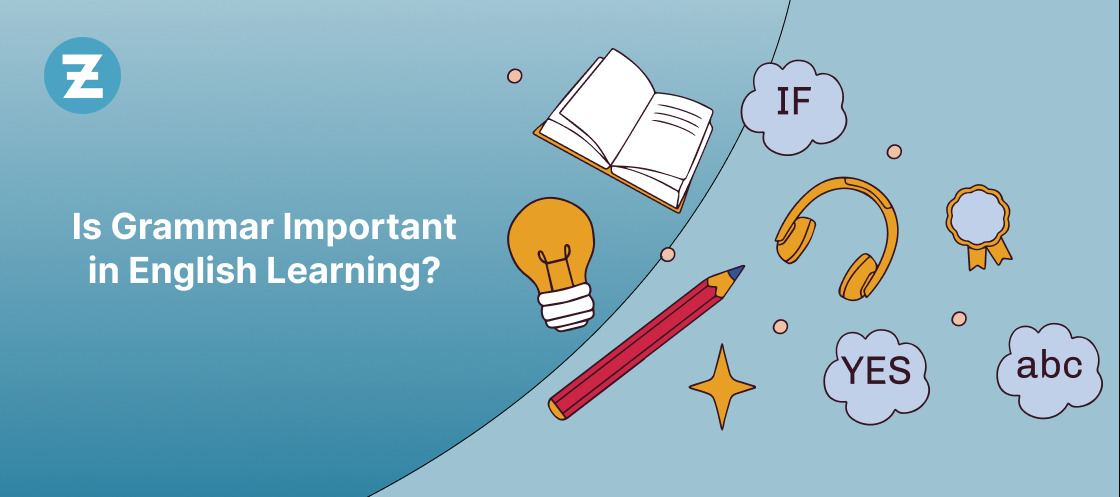Understanding grammar plays a vital role in mastering the English language. It provides structure, ensuring clear communication and comprehension. Learners of English must grasp grammatical rules to convey their thoughts effectively and avoid misunderstandings.
Mastery of these elements also boosts confidence when speaking or writing, augmenting one’s ability to engage with native speakers fluently. As individuals seek improvement in their linguistic skills, recognizing the significance of grammar becomes paramount for both personal advancement and professional growth within an increasingly globalized world where proficiency in English often serves as a key asset.
Understanding Grammar Fundamentals
Grammar holds the key to unlocking clear communication in English. It’s not just a set of rules but a system that structures language, shaping words into messages we understand. Think of grammar as the toolkit for building sentences: nouns and verbs are your hammer and nails; adjectives and adverbs add color like paint.
Knowing these tools helps one avoid confusion when sharing thoughts or information. Just imagine mixing up tenses during an important talk – it can throw off listeners, muddying the intent behind your words. Professionally written emails demand good grammar too; they prevent misunderstandings among colleagues with precise language use.
Moreover, grasping grammatical concepts aids learning new languages faster by highlighting common patterns. In essence, solid grammatical knowledge is vital – be it keeping friends on side or excelling academically and career-wise – enhancing both personal growth and professional prowess through improved English proficiency.
Read also: How to Choose A, An, The, and Zero: English Articles
Building Blocks of Effective Communication
Effective communication in English hinges on grammar. It shapes how we join words, craft sentences, and articulate ideas with clarity. Across the world, English touches over 5 billion lives as a second tongue; mastering it paves the way for global opportunities in work and travel.
For scholars or professionals striving to excel—and there are many—English proficiency isn’t just beneficial but often mandatory. Crafting research papers or engaging presentations demands good command of this language’s nuances and structure. In realms where precision counts—for instance, academia—the stakes couldn’t be higher: A misplaced conjunction can tilt meanings into confusion.
Moreover, being well-versed in English breaks barriers across cultures—a key that unlocks rich resources while opening doors to broader understanding between diverse groups of people.
Grammar Shapes Clear Expression
Grammar acts as the framework for clear expression in English. It offers rules that help avoid confusion when we write or speak. The importance of grammar lies in its ability to enhance clarity.
This is vital across all platforms where we share words, such as emails and social media. Clarity becomes critical because errors can lead to misunderstandings, which may cause time-wasting explanations or even disputes from misinterpreted instructions. By using proper grammar, your message gets across on the first attempt without ambiguity; this leads to effective communication with fewer chances for error.
Additionally, people who face challenges like dyslexia benefit greatly from well-structured sentences aided by correct grammar usage—it simplifies comprehension significantly. Technology supports us too—improving over time—to recognize grammatical patterns thus promoting better understanding through text-to-speech tools that read aloud more accurately thanks to properly constructed phrases following grammatical guidelines.
Accuracy in Language Learning
In language learning, getting grammar right helps people talk clearly. They can say what they mean without a mix-up. When learners know grammar, they get better at listening and reading too.
It shapes how we build our sentences—the way the words sit and which word comes first. Knowing these rules makes talking and writing smooth. With it, you make fewer mistakes; your ideas come through clean with power behind them.
In English, knowing when to use past or present tense matters just as much as where a comma goes. As folks learn more English grammar patterns like this step by step—learning from simple to hard stuff—they grow their skill in using new words right each time around. Learning good sentence form is key for all who want to be sure in saying things well—it sharpens thinking skills every bit as much as it does speaking ones.
Enhancing English Proficiency Through Grammar
Good grammar lays the bedrock for clear communication, both on paper and verbally. When kids get grammar right, their ideas shine clearly in their writing. They can tell stories or break down facts with ease; this makes each sentence they weave understandable to readers.
Correct English rules help them line up words like pieces of a puzzle – just so – making thoughts flow without stumbling blocks. Using proper grammar also means your child cares about what they write and who reads it. It cuts down confusion, saving time for everyone involved—no need for second glances at sentences that didn’t land quite right the first time around.
Teaching children these language fundamentals early sets them up well beyond school walls; from college to career paths chosen later on—they always have solid ground beneath their feet when expressing themselves. Mistakes in spelling or punctuation may flip an entire argument upside-down, which could lead to misunderstanding—a serious issue depends on context. In all academic work lies a thread of structure woven by good use of grammar—it’s not merely informative but clear-cut and logical too!
This practice helps avoid missteps as points build upon one another towards sound conclusions within any discourse presented.
Navigating Complex Language Structures
Grasping the way words weave together is key for learners. English has its twists, with rules that bend in context. It’s like a road with signs pointing out turns and stops; grammar guides you along this path.
Mastery here means knowing when to break or follow patterns for effect or clarity. Skilled speakers play with sentence length and mix complex ideas with simple ones—this shows control over language depth. Experts say poor grammar can lead to confusion—a mismatch of verb tenses may send listeners off track.
For those learning, understanding these structures boosts confidence in both speaking and writing tasks. Teachers stress practice as vital—it’s how we turn theory into skill after all! Real-world exercises help students recognize syntax cues quickly, making communication more transparent across various settings.
Avoiding Misunderstandings with Good Grammar
In learning English, good grammar serves as the backbone for clear communication. It lays out patterns that learners across the world can recognize and apply to their speech. With a solid grasp on rules like subject-verb agreement, students find it easier to understand others and express themselves without confusion or errors.
For those working to improve their language skills, listening becomes just as critical as speaking; it allows them to absorb correct structures and usage naturally. This input is fundamental when engaging with native speakers—be it casual conversation or more structured environments such as classrooms. Moreover, grammar simplifies writing tasks significantly by providing clarity in sentence formation—a crucial aspect not only for academic success but also everyday interactions where precise expression of past or future events is necessary.
Ultimately, consistent practice combines these elements into fluent proficiency—that desired goal every learner strives towards where ideas are formed effortlessly using well-understood grammatical systems.
The Role of Grammar in Fluency
Grammar holds a key role in English fluency. It ensures that ideas are shared clearly, whether one writes or speaks. Good grammar use enhances understanding and prevents confusion about the writer’s intentions.
As young ones learn these rules, they build skills essential for all life stages; be it at school level or on other future paths. Mastery of grammatical structures also reflects care for the subject discussed and respect towards readers like teachers or peers who may read their work to offer feedback. A well-written text immediately signals an author’s passion and authority over explored themes—a confidence boost in itself!
Moreover, this clarity aids audiences from varied backgrounds, including those learning English as a second language who rely heavily on proper structure to comprehend texts accurately. Fostering grammar knowledge early paves the way for logical writing that meets academic standards while avoiding misinterpretations due to poor grammar usage—thus improving communication prowess significantly.
Read also: Present or Past? Let’s Make Tenses Easy and Error-Free!
Mastering Subtleties for Advanced Learners
Advanced learners thrive when they dive into the subtleties of English. They move beyond basic grammar, focusing on crafting clear and strong writing. This shift means paying attention to details like cutting unnecessary words and choosing active verbs over passive ones.
Teachers can foster improvement by setting SMART goals based on individual learner profiles, thus ensuring progress is trackable for each student as their skills evolve. Personalizing objectives helps students aim higher in areas that matter most. Using newspapers in language learning benefits advanced speakers.
It exposes them to complex topics, expands vocabulary, and shows natural speech patterns, crucial for sophisticated English conversation.
Grammar serves as the backbone of English language learning. It provides structure, ensuring clarity and coherence in communication. Mastery of grammatical rules equips learners with tools to express ideas precisely and be readily understood by others.
While conversational skills can be developed through practice alone, formal writing demands a keen understanding of grammar for effectiveness and professionalism. Thus, while engaging methods like immersion highlight practical use, a solid grasp of grammar remains essential for full command over the English language across all forms of discourse.
Conclusion
In conclusion, mastering grammar is essential for effective communication in English language learning. It provides the foundation for clear expression, boosts confidence, and opens doors to academic and professional success. Incorporating tools like ZoundsLike a language learning app enhances the learning experience. Grammar, coupled with innovative resources, accelerates the journey towards proficiency, ensuring learners can confidently navigate a globalized world.









